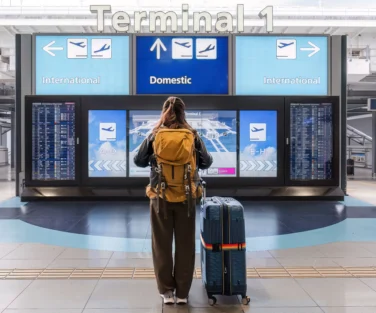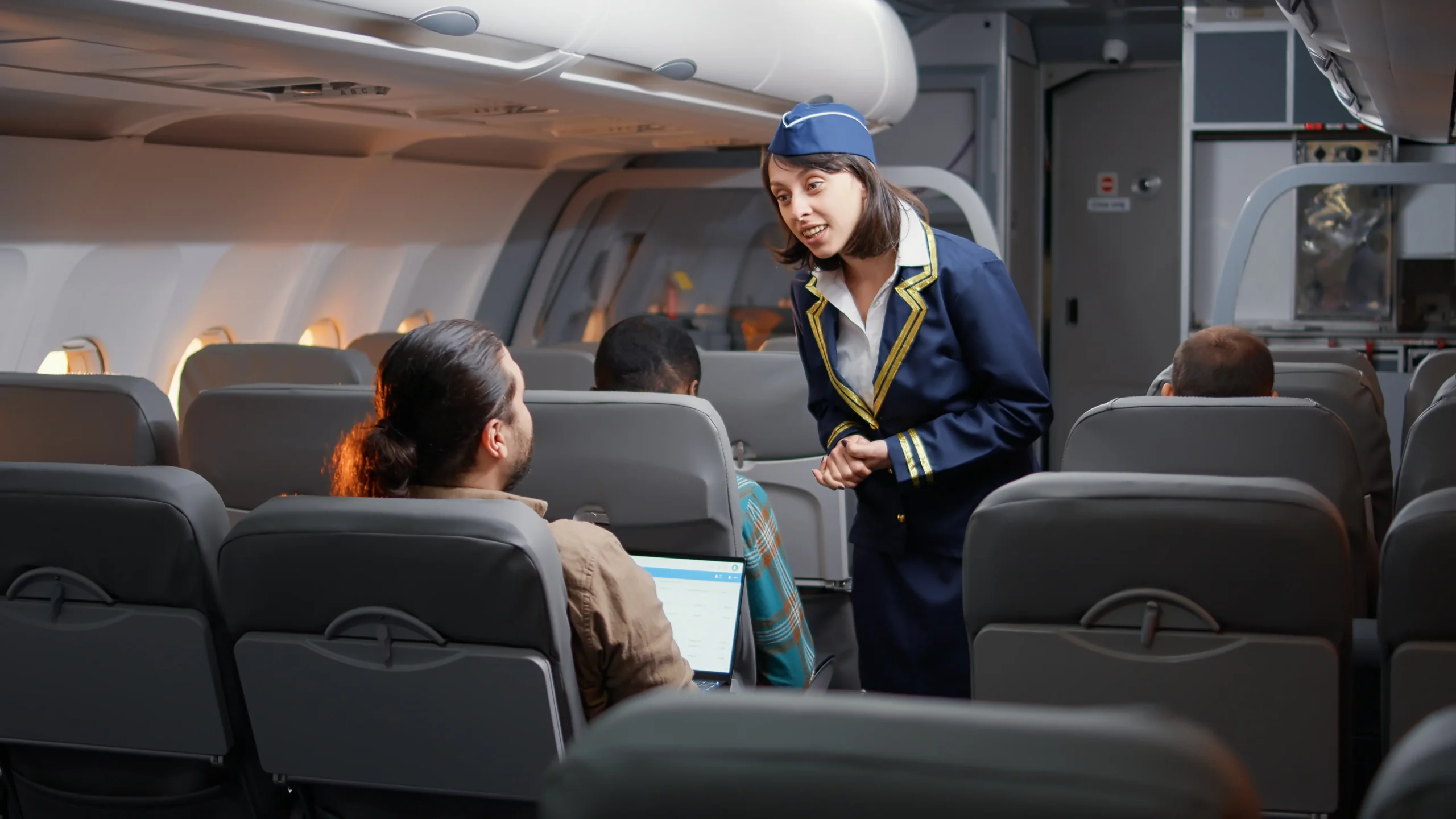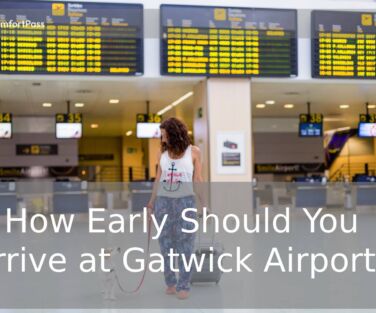
Flight Overbooking: What Is It and Why It Happens
Flight overbooking happens when the airline sells more tickets than seats in the aircraft. For them, no-show passengers and last-minute cancellations mean no profit. Therefore, airlines practice overbooking to ensure the full capacity of the plane.
The chances of an overbooked flight depend on the airlines, travel time, and flight route. For example, according to the latest statistics, business-class international flights are the most likely to be overbooked. But it doesn’t mean it won’t happen to other flights. When it comes to overbooking, you can’t be sure until your flight departs.
Air passengers should remember that, in case of overbooking, their air carrier will look for volunteers. Apart from money or vouchers, they will also be given an alternative flight to reach their final destination.
If you want to increase your chances of not being denied boarding, consider a seat reservation on the plane. Usually involuntary bumping applies to those who didn’t purchase this feature.
Overbooked flights rarely influence the travel of those who transit and must be on time for their connecting flights. For these passengers, a canceled flight could cause a lot of trouble.
When Air Travel Goes Wrong: Overbooking Passenger Experience
Naturally, the idea of your travel being delayed may cause stress and anxiety. At your destination, you probably have a booked hotel room and planned transport from the airport. If you decide to cancel these services, you may not receive any refund.
Airlines take care of those who voluntarily leave the aircraft and provide overbooked flight compensation. They are also given a ticket refund and a reservation for an alternative flight. Passengers who need to wait longer at the airport will receive hotel accommodation and dinner vouchers.

Your Compensation Rights as a Passenger
In the European Union, Regulation 261/2004 mandates denied boarding compensation. It also applies to cases of flight cancellations or delays. The amount you may be given depends on the travel duration and the time of delay you experienced.
In the United States, compensation for denied boarding can be as high as 1,500 USD. The amount should allow the passenger to still enjoy their travel. Compensation is based on the arrival time at the destination compared to the original schedule.
You should seek assistance from consumer protection agencies to claim compensation. To report your issue, you must provide your personal and flight details. Boarding passes may be required. They will let you know if you’re eligible for compensation and provide more information on steps to follow.
Voluntary vs. Involuntary Bumping
Voluntary bumping occurs when airlines seek passengers willing to give up their seats, often offering compensation such as vouchers or cash. Once there are enough volunteers, the flight may depart. It usually happens at the departure gate before boarding.
Involuntary denied boarding happens when passengers aren’t allowed entry against their will, and airlines must compensate them according to the official regulations.
Although the idea of bumping may seem scary, it could be beneficial for travelers with flexible plans. Airlines overbook flights to provide more affordable tickets for lower prices. They do it because they suspect some passengers won’t attend their flight.

Environmental Impact: The Green Side of Overbooking
Surprisingly, overbooking has a positive green side by optimizing flight capacity and reducing carbon emissions per passenger. Airlines can slightly reduce their environmental impact by ensuring flights operate at higher occupancy rates.
Studies indicate that effective overbooking strategies lower overall CO2 emissions, as fewer flights are needed to accommodate travelers. However, this practice must be balanced, ensuring passengers are fairly compensated for the inconvenience. A sustainable approach is essential to minimize the ecological footprint.
Future of Overbooking: Trends and Changes
In the future, we’ll likely see increased use of predictive analytics and dynamic pricing. It’s also possible that airlines are going to use AI to optimize booking, leading to more transparent policies. Integrating services and prioritizing customer experience will be key to success.
Frequently Asked Questions (FAQs)
Why does flight overbooking happen?
Flight overbooking occurs when airlines sell more tickets than available seats on an aircraft. Airlines do this to maximize revenue and minimize losses from no-show passengers. Overbooking is more common for short flights but can happen on all voyages.
Is flight overbooking legal?
Yes, flight overbooking is legal. Airlines rely on this practice to compensate for no-shows, which is usually outlined in their contract of carriage. However, they must provide compensation and assistance to passengers who are denied boarding due to overbooking.
How often do passengers get bumped from flights?
Passengers are rarely bumped from flights. In the US, the rate of involuntary bumps ranges from 0.1% to 0.5% of passengers. So you don’t need to worry about your travel plans.
What compensation am I entitled to if I’m denied boarding?
If denied boarding in the EU, you may be entitled to compensation between 250 and 600 EUR. In the US, it may amount to 1,500 USD. Always keep your boarding pass and request money immediately following the incident.
Are some flights more likely to be overbooked than others?
Some flights are more likely to be overbooked than others. Airlines analyze historical no-show rates, which can vary by route and time of year. For example, business routes often see higher no-show rates.

